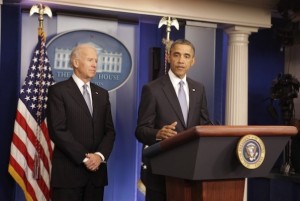The Fairness of Taxes and the Wealthy
 At the center of the confrontation between leaders over the fiscal cliff lies one particular question, is the federal income tax system fair? And in particular are those in the wealthiest income brackets paying their fair share. And while there seems to be consensus, at least to some degree, between President Obama and Speaker of the House John Boehner that federal income taxes should be raised for the wealthy, there is still debate over the amount the increase should be. There are many who would argue that the wealthy currently pay a disproportionate portion of federal income taxes, which is supported by recent data from the IRS. What seems to be missing, however, is an understanding of how the data does not accurately depict what the wealthiest Americans truly make.
At the center of the confrontation between leaders over the fiscal cliff lies one particular question, is the federal income tax system fair? And in particular are those in the wealthiest income brackets paying their fair share. And while there seems to be consensus, at least to some degree, between President Obama and Speaker of the House John Boehner that federal income taxes should be raised for the wealthy, there is still debate over the amount the increase should be. There are many who would argue that the wealthy currently pay a disproportionate portion of federal income taxes, which is supported by recent data from the IRS. What seems to be missing, however, is an understanding of how the data does not accurately depict what the wealthiest Americans truly make.
Recently an analysis of the 2010 federal tax returns was released by the IRS, showing the different income groups allocation of federal income taxes. According to the analysis, the highest earners (individuals with an adjusted gross income of at least $369,691) were paying approximately 37% of all federal income taxes, even though they accounted for less than 19% of total income. When looking at this statistic alone, it would seem that there is validity in saying that the wealthy do pay a disproportionate amount of federal income taxes.
While statistics are best for interpretation of data, they are only as good as the information they are based on, and in this case the data is inherently misleading. The amount individuals pay for federal income tax are based only on what the federal government defines as income. In the case of the richest Americans many other sources of income are not included (e.g. inheritances, distribution of trusts, ect.). This shows that while the richest of Americans pay a disproportionate amount of the federal income taxes, much of their income goes tax-free.



